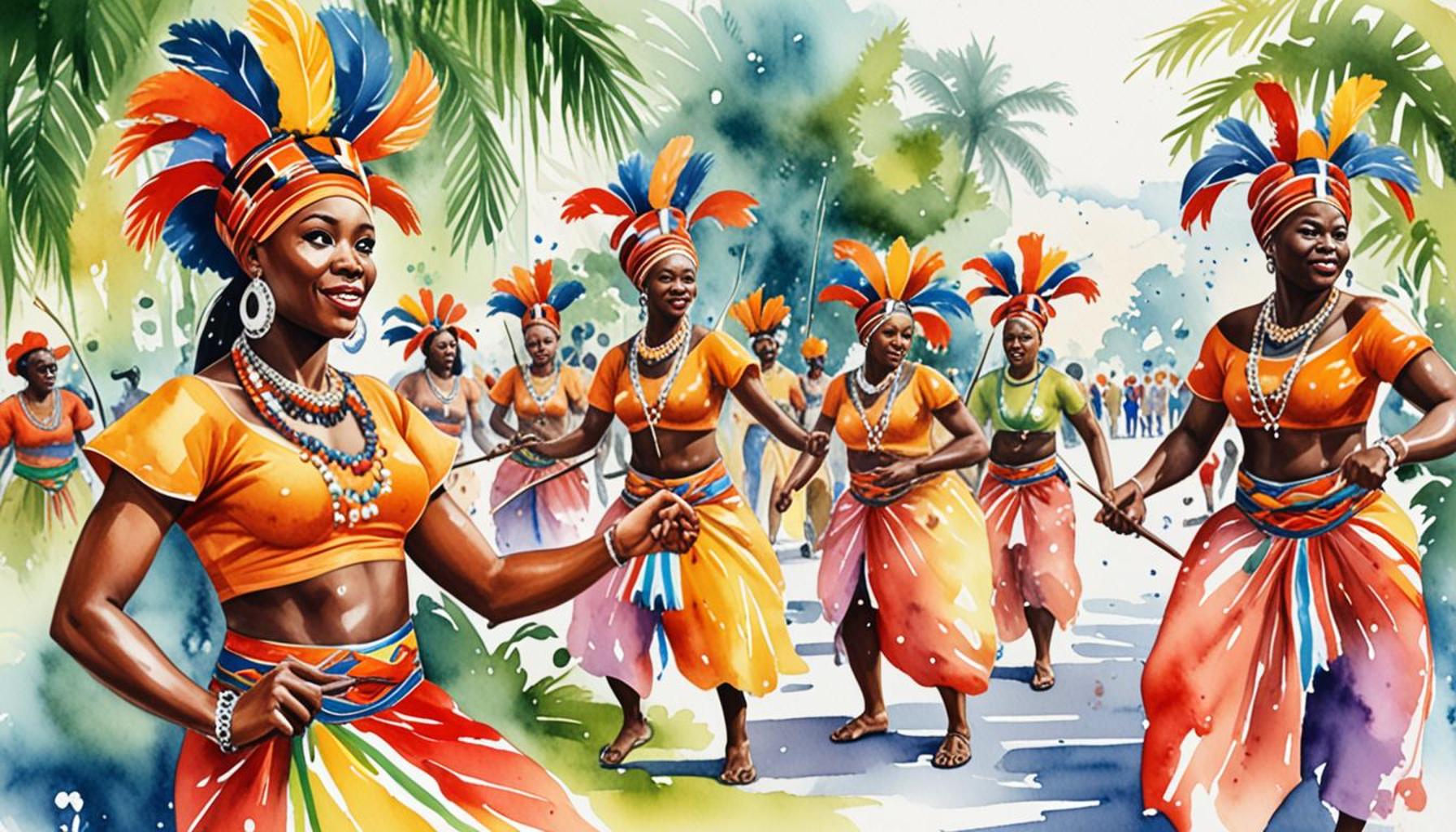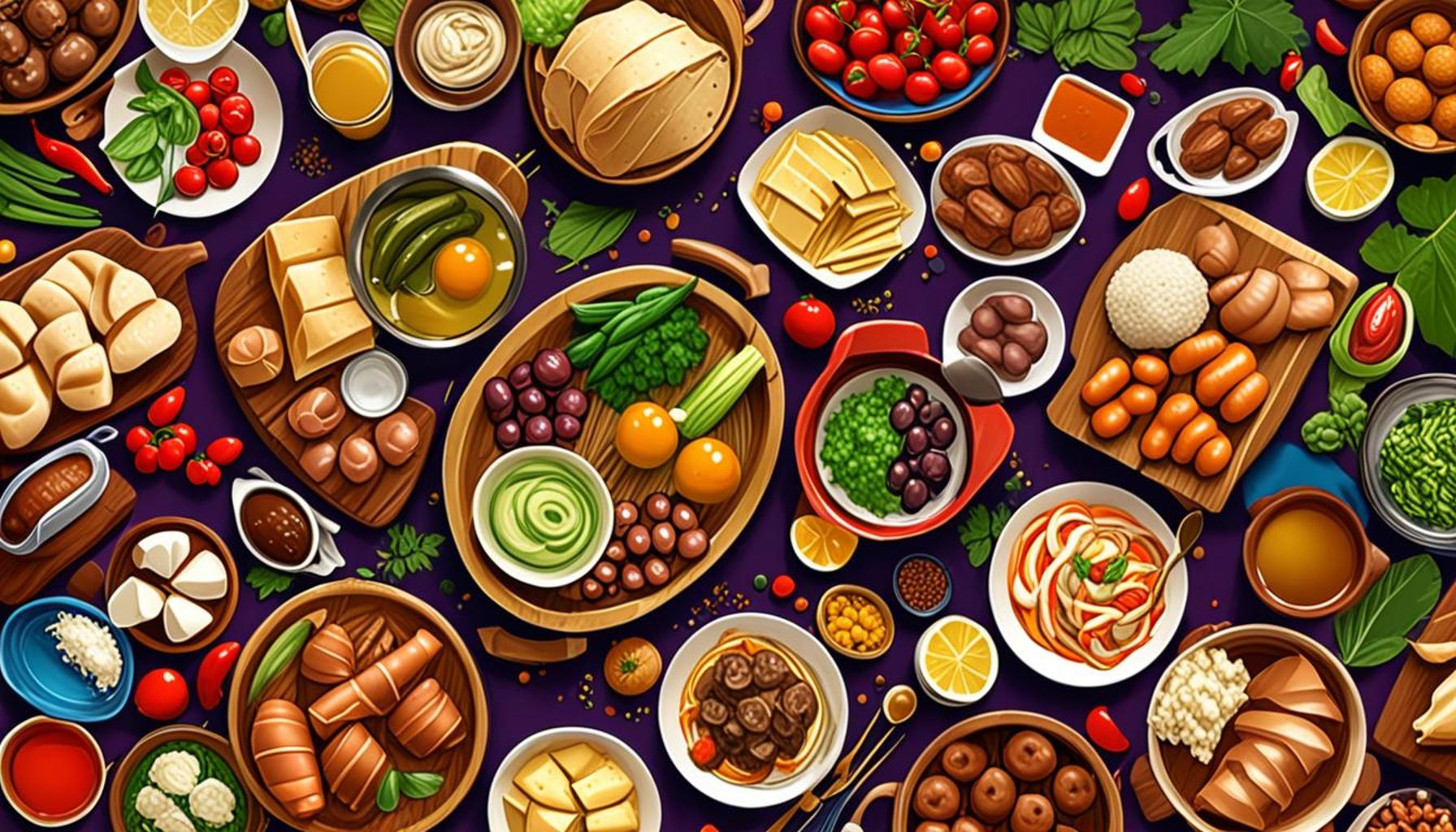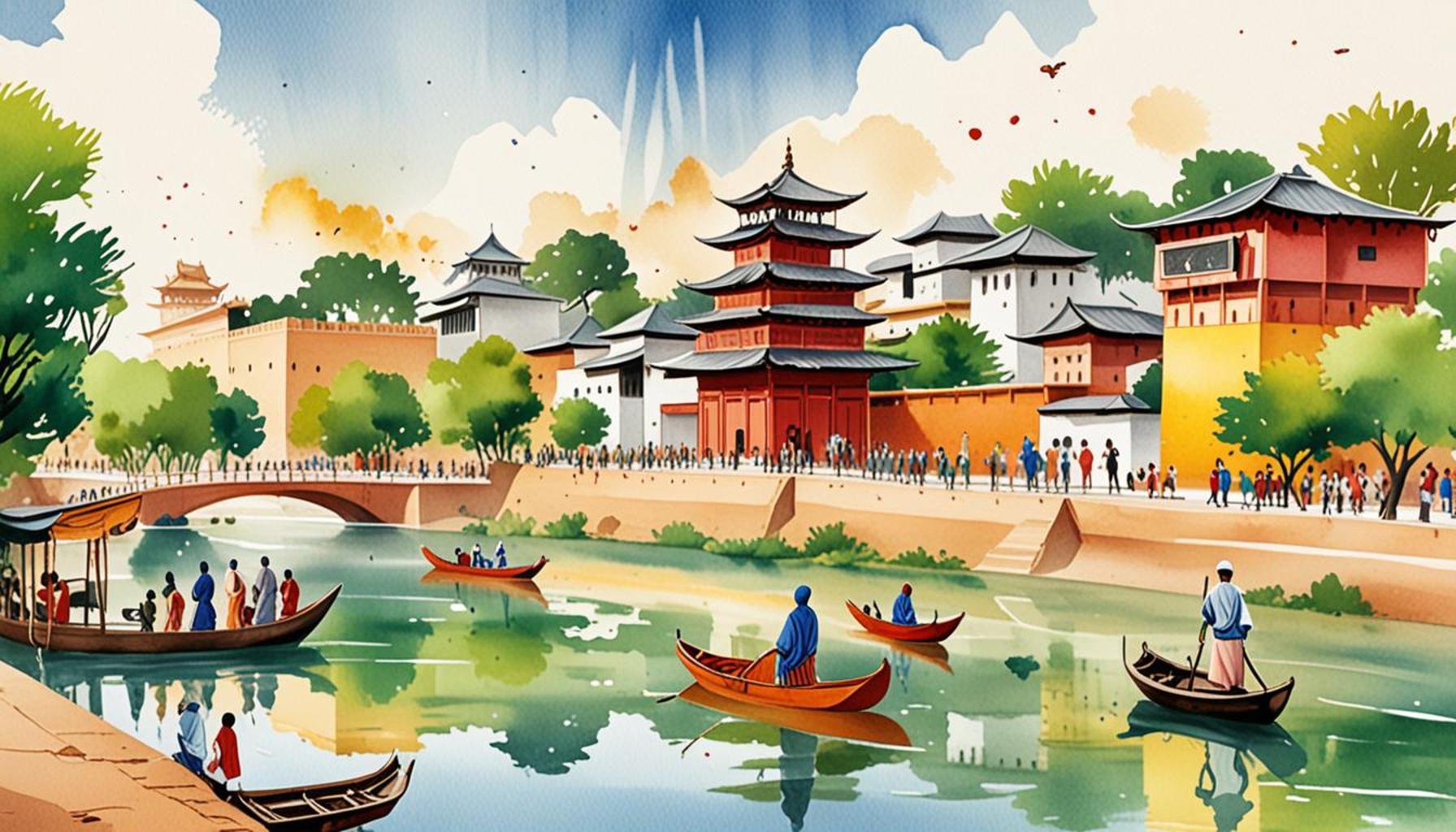Exploring Traditional Music and Dance on the Tourist Route of Lagos

Exploring the Cultural Landscape of Lagos
Lagos is not merely a city; it is a vibrant collage of cultural expressions that reflects the heart and soul of Nigeria. The rhythmic beats of traditional music and the lively movements of dance are woven into the very fabric of the city, acting as both a celebration of heritage and a beacon for visitors. As you stroll through neighborhoods like Idumota or Balogun Market, performances unfold spontaneously, drawing you into a world where every note and every dance step reverberates with history.
Why Traditional Music and Dance Matter
The significance of traditional music and dance in Lagos extends beyond mere entertainment; they are vital to understanding the cultural identity of Nigeria. Here are some key elements to ponder:
- Rich History: Traditional performances are steeped in narratives that often trace back thousands of years. For instance, the Gelede festival showcases the Yoruba people’s reverence for their ancestors and the power of women, while simultaneously providing insight into community life and societal values.
- Community Connection: Music and dance act as a social glue, bringing together people from all walks of life. During communal events, such as weddings or festivals like Ogiri festival in Oyo State, participants join hands in celebratory dance, symbolizing unity and shared joy.
- Tourist Attraction: The allure of traditional music and dance draws tourists eager to immerse themselves in authentic experiences. Venues like The Terra Kulture and Freedom Park host performances that not only entertain but also educate visitors about Nigeria’s diverse cultural landscape.
From the pulsating rhythms of Afrobeat—pioneered by music icons like Fela Kuti—to the graceful steps of the Ekombi dance, which originates from the Efik people of Cross River State, each performance encapsulates a uniqueness that transcends time. As you travel along the tourist route of Lagos, such as the culturally rich streets of Lekki or Victoria Island, you’ll witness how these performances are not merely art forms but are considered vital expressions of life and tradition.
Prepare to be captivated as you delve deeper into the unforgettable world of traditional music and dance in this dynamic city. Every encounter offers a glimpse into the soul of Lagos, a city that thrives on rhythm, movement, and the spirit of communal connection.
YOU MAY ALSO LIKE: Read read another article
Unveiling the Musical Pulse of Lagos
As you traverse the bustling streets of Lagos, stepping into its lively neighborhoods can feel like stepping into a living museum of sound and motion. Traditional music and dance in Lagos are not just performances; they are the concise expression of the city’s diverse cultural heritage. Each beat of the drum and every twirl of a dancer tells a story that connects generations, preserving traditions while adapting to contemporary influences.
The Diverse Sounds of Lagos
The traditional music scene in Lagos is an extensive tapestry woven with various styles, instruments, and cultural backgrounds. At the core of this musical landscape is the talking drum, an instrument deeply rooted in Yoruba culture, capable of mimicking human speech to convey messages and emotions. During traditional events, skilled drummers exhibit their mastery, leading the rhythm that draws everyone into the spirit of celebration. Here are some key musical styles you might encounter:
- JuJu Music: Characterized by its blend of traditional African rhythms and western pop influences, JuJu music originated in Nigeria and remains immensely popular at social gatherings, encapsulating the joy of life’s milestones such as weddings and birthdays.
- Highlife: A genre that emerged from Ghana, Highlife has found its voice in Lagos, merging strong guitar melodies and jazzy brass sections with traditional Nigerian sounds, appealing to a broad audience.
- Afrobeat: Pioneered by the legendary Fela Kuti, this genre combines traditional African music with jazz, funk, and soul, characterized by intricate percussion and politically charged lyrics. A trip to the New Afrika Shrine can offer a profound experience of this vibrant music culture, as local artists continue to push its boundaries.
As the sun sets and the city buzzes with evening energy, traditional dance performances begin to unfold. Dance is not merely an artistic expression in Lagos; it’s an integral part of community celebrations and rituals. The Eyo Festival, for instance, features dancers adorned in traditional garb, moving gracefully to the beat of music that celebrates the heritage of the Yoruba people. Visitors to the Lagos Island during this festival can immerse themselves in the dramatic and vibrant displays that speak volumes about the culture’s history and pride.
Whether you’re in a quaint local venue or at a larger festival, the immersive experience of traditional music and dance allows visitors to connect with Lagos in a manner that is both intimate and grand. Every dance step and musical note serves as a reminder of the rich cultural tapestry that defines not just Lagos, but the entirety of Nigeria. As tourists, engaging with these traditional arts can lead to a deeper appreciation of the city’s heritage and an unforgettable journey into its soul.
| Advantage | Detail |
|---|---|
| Immersive Cultural Experience | Participating in local music and dance activities allows tourists to connect deeply with the vibrant heritage of Lagos. |
| Support for Local Artists | By engaging with traditional performances, visitors contribute to the sustainability of local artists and cultural practitioners. |
The exploration of traditional music and dance on the tourist route of Lagos is not merely an aesthetic experience; it serves as a bridge to the rich tapestry of Nigerian culture. Tourists are often captivated by the lively rhythms of indigenous music and the dazzling displays of traditional dance, which tell stories of the communities and their histories. This engagement provides a unique opportunity to witness the cultural pride of Lagos firsthand, fostering a sense of connection between visitors and locals.Local artists play an essential role in this cultural exchange. Performing in front of an appreciative audience assists in preserving traditional art forms, motivating the younger generations to embrace their heritage. This symbiotic relationship enhances both tourism and community development, as successful events can lead to further investment in local arts and cultural initiatives. As tourists explore the vibrant scenes of Lagos’ nightlife and festive gatherings, they uncover layers of meaning behind the performances, often leading to conversations with artists that further enrich their understanding. Thus, the experience transcends mere observation, becoming a crucial part of their journey through Lagos.
ADDITIONAL INSIGHTS: Expand your understanding here
Experiencing Dance as a Cultural Narration
While traditional music serves as the auditory pulse of Lagos, dance takes the spotlight as the visual manifestation of the city’s rich cultural heritage. The various styles of dance performed throughout Lagos not only entertain but also tell profound stories of identity, history, and social values. Each dance form carries its context, often linked to specific festivities or rituals that resonate deeply within the community.
The Significance of Traditional Dance
In Lagos, traditional dances such as Apala, Geregue, and Gumbe serve as vital expressions of collective memory and communal harmony. These dances are usually characterized by their dynamic movements and vibrant costumes, exquisite craftsmanship that reflects the ingenuity of Lagos artisans. Each performance can often be a collaborative narrative involving the participants, the audience, and even the environment.
- Apala: Originally developed by the Muslims in the Western part of Nigeria, this dance form incorporates rhythmic footwork and powerful arm movements. It is performed during religious celebrations and traditional gatherings, often introducing themes of praise and devotion.
- Geregue: This dance emphasizes the urban street culture of Lagos, showcasing influences from both the traditional and modern world. The energetic and swift motions capture the spirit of celebration during various ceremonies, especially weddings, where families come together in joyous union.
- Gumbe: Known for its lively movements and engaging storytelling elements, Gumbe often reflects the daily lives and struggles of the Nigerian people. Performed during festivals and cultural gatherings, it encourages community participation, weaving a stronger bond among performers and onlookers alike.
Moreover, traditional dance schools and local performance groups scattered across Lagos offer visitors a chance not only to watch but also to participate. Tourists can enroll in workshops that provide an enriching opportunity to learn firsthand the movements and the heritage behind each dance style. Venues around the Victoria Island and Lekki areas regularly host cultural workshops and performances, where local dance experts share their skills, making it accessible for everyone who wishes to experience a slice of Lagos’ culture. This engagement fosters a connection that transcends mere observation, enabling tourists to become a part of the vibrant story woven through the city’s artistic expressions.
Furthermore, festivals such as the African Cultural Alliance Festival showcase not only music but also an array of dance performances that entice both locals and visitors alike. With various acts highlighting traditional and contemporary styles, attendees are treated to a feast for the senses, featuring costumes bursting with color and intricate designs. Also, Lagos prides itself on hosting the Oke Igbin Festival, which celebrates the rich biodiversity of local wildlife through dance, providing a unique experience that integrates both cultural and ecological awareness.
Vibrant dance spaces often emerge on the street corners and local venues, where impromptu dance-offs showcase not just traditional forms but also innovations that reflect contemporary influences. This lively exchange between tradition and modernity demonstrates how the younger generation’s creativity reinterprets age-old customs, crafting new narratives without losing sight of their roots.
For tourists, immersing in Lagos’ traditional dance scene is not merely an act of watchfulness. It serves as a bridge, transporting them deeper into the city’s socio-cultural landscape, enriching their understanding of what it means to call Lagos home.
YOU MAY ALSO LIKE: Read read another article
Embracing the Rhythm of Lagos
As we delve into the heart of Lagos, it becomes clear that traditional music and dance form the city’s vibrant heartbeat, pulsating with stories, culture, and community spirit. The rich tapestry of local traditions not only captivates tourists but also serves as a reminder of the enduring values passed through generations. Each performance—be it the soulful strains of Apala or the mesmerizing movements of Gumbe—is a narrative woven into the cultural identity of Lagos, reflecting historical contexts and social dynamics.
For visitors exploring this bustling metropolis, the opportunity to engage with these expressive art forms is invaluable. Participating in cultural workshops and attending diverse festivals enhances appreciation and understanding, bridging gaps between cultures and fostering shared experiences. Events such as the African Cultural Alliance Festival provide an enticing platform where both traditional and contemporary elements unite, inviting tourists to celebrate the essence of Lagos.
Ultimately, exploring traditional music and dance along the tourist route of Lagos transcends mere entertainment; it is an invitation to immerse oneself in a living heritage that resonates with both locals and visitors alike. As the city continues to evolve, these age-old customs remain a testament to its resilience and creativity, ensuring that the vibrant spirit of Lagos dances on—not only for the present but for generations to come. Delve deeper into this enchanting world, and you may just find that the rhythm of Lagos becomes a cherished part of your own journey.


